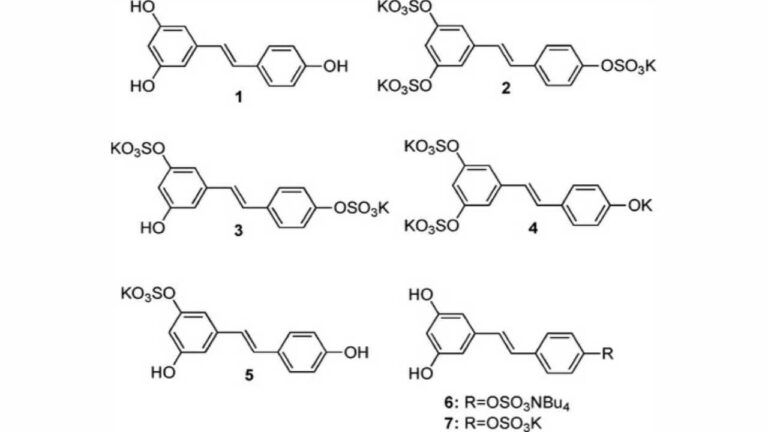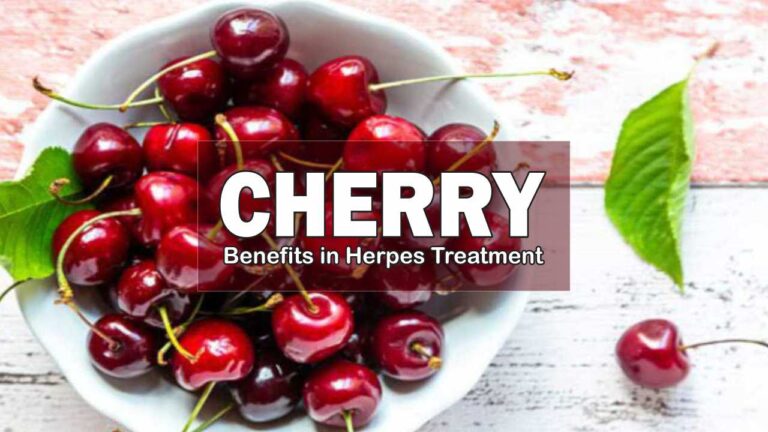There is some preliminary evidence suggesting that raspberries may be helpful in treating herpes. Raspberries contain compounds called tannins and ellagic acid, which may help reduce the replication of the herpes virus.
Additionally, raspberries are rich in vitamin C and antioxidants, which can help strengthen the immune system and fight the herpes virus.

Research on Raspberry in Herpes Treatment
Here are some studies that have explored the potential of raspberries in the treatment of herpes:
A study published in 2015 in the scientific journal “Journal of Natural Medicines” evaluated the activity of red raspberry extract against herpes simplex virus type 1 (HSV-1) in cell cultures. The researchers found that red raspberry extract showed antiviral activity against HSV-1, suggesting that raspberry may be a potential therapeutic option for the treatment of cold sores.
In another study published in 2016 in the journal “Antiviral Research”, researchers evaluated the effect of black raspberry extract on herpes simplex virus type 2 (HSV-2). They tested the raspberry extract on cells cultured in the laboratory and found that it significantly reduced the viral load of HSV-2.
Additionally, black raspberry extract also showed antiviral activity against other types of viruses, such as influenza virus and respiratory syncytial virus. The researchers suggested that black raspberry could be a promising source of antiviral compounds and could be useful in the development of new antiviral treatments.
Another study published in 2017 in the journal “BMC Complementary and Alternative Medicine” examined the effect of black raspberry extract on rats with herpes ulcers. The results showed that the black raspberry extract significantly reduced the frequency and severity of herpes ulcers in the rats.
Additionally, the raspberry extract also reduced inflammation and improved immune function in the animals. The researchers concluded that black raspberry extract has potential as a complementary treatment for herpes due to its anti-inflammatory and immunomodulatory properties.
In summary, while some preliminary studies suggest that raspberries may have antiviral properties and may help in the treatment of herpes, there is still a significant need for further research to determine their effectiveness and safety in humans.
Benefits of Raspberry in the Treatment of Herpes
Raspberries contain a variety of nutrients that may be beneficial in the treatment of herpes. Some of these nutrients include:
Vitamin C
Raspberries are an excellent source of vitamin C, which is a potent antioxidant that helps strengthen the immune system.
Anthocyanins
Raspberries are rich in anthocyanins, which are antioxidant compounds that help reduce inflammation and may help protect cells against damage.
Ellagic acid
This is a polyphenolic compound found in many fruits, including raspberries. Studies suggest that ellagic acid may have antiviral and anti-inflammatory properties that could be beneficial in the treatment of herpes.
Tannins
Raspberries also contain tannins, which are astringent compounds that can help reduce pain and inflammation associated with herpes.
Some of the potential benefits of raspberry in the treatment of herpes:
Reduction of viral replication
Preliminary studies suggest that compounds found in raspberries may help reduce the replication of the herpes virus.
Strengthening of the immune system
Vitamin C and other nutrients found in raspberries may help strengthen the immune system, which may help prevent recurrent infections.
Reduction of inflammation
The anti-inflammatory properties of raspberries may help reduce the inflammation associated with herpes and alleviate painful symptoms.
Nutrition Facts for Raspberries
Here’s a nutritional table for Raspberries:
| Nutrient | Amount per 1 cup (123 g) | % Daily Value |
|---|---|---|
| Calories | 64 | 3% |
| Total Fat | 0.8 g | 1% |
| Saturated Fat | 0 g | 0% |
| Trans Fat | 0 g | 0% |
| Cholesterol | 0 mg | 0% |
| Sodium | 1 mg | 0% |
| Total Carbohydrate | 15 g | 5% |
| Dietary Fiber | 8 g | 32% |
| Total Sugars | 5 g | |
| Protein | 1.5 g | 3% |
| Vitamin D | 0 mcg | 0% |
| Calcium | 30 mg | 2% |
| Iron | 0.8 mg | 4% |
| Potassium | 186 mg | 4% |
| Vitamin A | 33 IU | 1% |
| Vitamin C | 32.2 mg | 36% |
| Tannins | 0.06 g | |
| Anthocyanins | 0.149 g | |
| Ellagic Acid | 3.32 mg |
Note that daily values are based on a 2,000 calorie diet and may vary depending on individual needs. Ellagic acid is another beneficial compound found in raspberries that has been studied for its potential health benefits, including anti-inflammatory, antioxidant, and anti-viral effects.
However, more research is needed to confirm its effectiveness in treating herpes.
How to Include Raspberry in a Diet for Herpes Treatment
Including raspberries in your daily diet can be a delicious and healthy way to help in the treatment of herpes. Here are some suggestions for incorporating them into your diet:
Smoothies
Add fresh or frozen raspberries to your morning smoothie for an extra nutritional boost. Combine with other fruits, such as banana or blueberries, and a source of protein, such as yogurt or protein powder.
Salads
Add fresh raspberries to your salads for a sweet and tangy touch. Pair with green vegetables, such as spinach or arugula, and add nuts or seeds for a crunchy texture.
Natural Supplements
Including a supplement that contains all the nutrients from raspberries can be a practical and quick option if you don’t have much time to prepare your food.
Toppings
Add fresh or frozen raspberries as a topping for your cereal, yogurt, or oatmeal for a sweet and refreshing touch.
Desserts
Add fresh or frozen raspberries to desserts such as cakes, pies, or ice cream. Or, make a healthy raspberry dessert, such as a yogurt parfait with layers of fruit and granola.
Infusions
Make a hot or cold raspberry infusion to drink throughout the day. Simply add fresh or frozen raspberries to a pitcher of water or tea and let it steep for a few hours before drinking.
Remember that the key to incorporating raspberries into a daily diet to help treat herpes is moderation and balance. Raspberries can be a source of natural sugar, so try not to exceed the recommended amount.
Summary
Raspberry has been studied for its potential in treating herpes due to its antiviral, antioxidant, and nutrient properties, including tannins, anthocyanins, and ellagic acid. Studies have shown that raspberry extract may help reduce herpes activity, including genital and oral herpes.
Additionally, raspberry may help strengthen the immune system and reduce inflammation, which may be useful for alleviating herpes symptoms. Raspberry can be incorporated into daily diet in various ways, such as smoothies, salads, desserts, and infusions.
However, raspberry may support natural herpes treatment but should not replace medical treatment prescribed by your healthcare professional.




